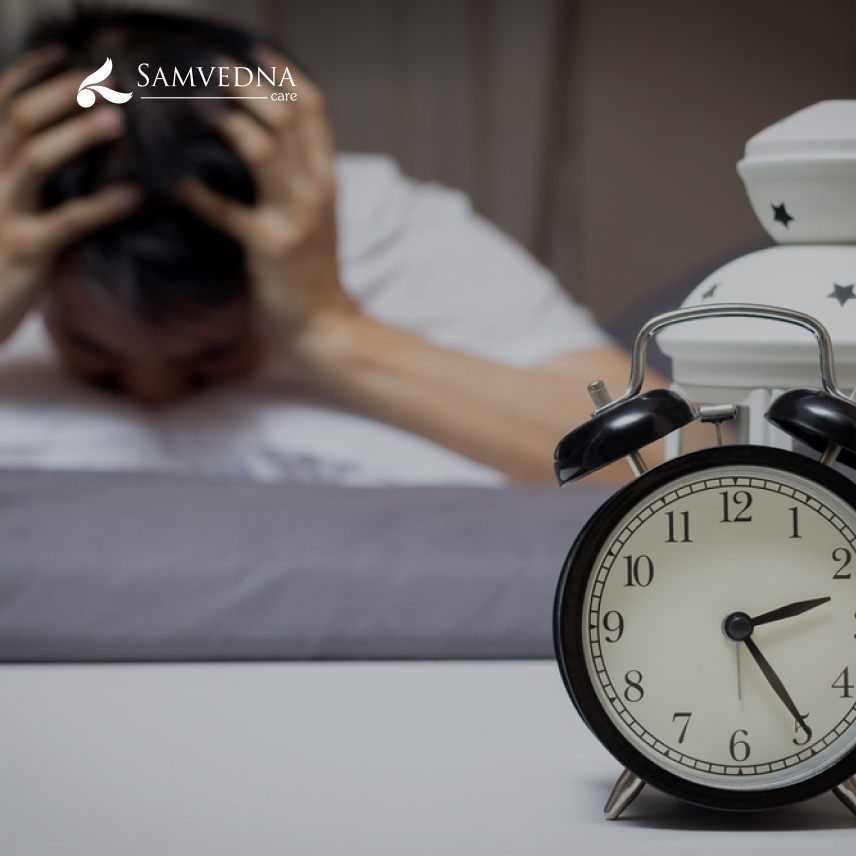Contact Us




“The human body sleeps with the same mobile phone and electricity. As electricity charges our mobiles, so does sleep charge our body.”- Dr. Vipul, NeuroPsychiatrist (MBBS, MRCPsych)
Samvedna Care recently marked a significant milestone, celebrating 10 years of dedicated service to the community. On this momentous occasion, a webinar on the crucial subject of sleep was held, underscoring the pivotal role of quality sleep in fostering holistic well-being. Dr. Vipul Rastogi, a distinguished Neuropsychiatrist at Samvedna Care, shed light on the profound impact of sleep on our physical health, mental and emotional well-being, and overall productivity. The webinar unveiled vital insights into the intrinsic relationship between sleep and mental health, emphasizing the need to prioritize rest amidst the demands of a competitive world.
In this era of competition, hustle, deadlines, and targets, we are so engrossed and have multiple things running through our minds that the significance of quality sleep often takes a backseat. However, the importance of sleep cannot be overstated. Dr. Vipul elucidated the natural essence of sleep, emphasizing the necessity for the body to feel naturally fatigued and the mind to be at ease to facilitate sound sleep. The nature of sleep also depends on the various stages, as discussed in the webinar. There are Stages 1, Stage 2, Stage 3, and then REM (Rapid Eye Movement Sleep). In the initial half of the sleep, people cover 70 percent of the sleep, and the rest is covered in the second half. Disruptions in these stages can often manifest as various sleep disorders.
Sleep disorders and mental health are deeply interconnected, forming a complex interplay that can significantly impact an individual’s overall well-being. Conditions such as insomnia, sleep apnea, and restless leg syndrome (a condition that causes an uncontrollable urge to move the legs, usually because of an uncomfortable sensation) can not only disrupt the sleep-wake cycle but also contribute to heightened levels of stress, anxiety, and depression. Similarly, untreated mental health disorders, including depression and anxiety, can lead to sleep disturbances, perpetuating a cycle of compromised sleep quality and worsening psychological symptoms. Recognizing and addressing the bidirectional relationship between sleep disorders and mental health is crucial for implementing comprehensive treatment approaches that prioritize both aspects of well-being.
However, a lot of individuals these days prefer to cut time out from their sleep.
“Revenge bedtime procrastination, which means people who have a really stressful job and they feel, let me watch and do things before I sleep…I need two hours, and they cut it from sleep, so they push away sleep, then they’re tired in the morning that they can’t concentrate and they might be irritable”
Dr. Vipul shared the following tips for achieving a restful and rejuvenating sleep:
Sleep is a fundamental pillar of overall well-being, impacting various aspects of our physical and mental health. Dr. Jayashree Dasgupta, Co-Founder of Samvedna Care, said in her closing statement that sleep issues are really manifestations of some other kind of problems, and sometimes we do not even know what those issues are. It is essential to speak to a therapist to identify the sources and work on them. The webinar served as an enlightening platform, advocating the crucial role of prioritizing sleep for a balanced and fulfilling life.
To view this webinar and understand sleep in depth, please click the link below:
Ask Me Anything on Sleep Difficulties